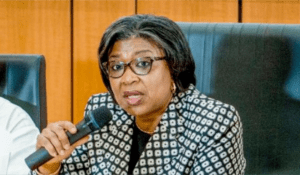
British Pound Sterling outshines global currencies as Naira struggles to stabilize
By Sodiq Adelakun
The British pound sterling has been outperforming most of the world’s currencies, including the Nigerian naira, despite the Central Bank of Nigeria’s (CBN) aggressive monetary policies.
Recent reports from the CBN have indicated that foreign portfolio investors (FPIs) have shown a keen interest in Nigerian debt, purchasing a substantial portion of the N1.053 trillion worth of bills with maturities ranging from three to twelve months.
This high demand, driven by attractive yields, is seen as a positive response to the CBN’s efforts to draw in dollar inflows to support the naira.
Nevertheless, the naira continues to struggle in the unofficial market, where it is currently trading at 2,078 to the pound.
This rate hovers close to its all-time low of 2,414 against the pound, signaling ongoing concerns about the Nigerian currency’s stability.
On the other hand, the British economy is demonstrating unexpected resilience, prompting traders to anticipate that the Bank of England may begin to ease its monetary policy as early as August.
This expectation contrasts with the anticipated policy cuts by the Federal Reserve and the European Central Bank, which are expected to occur in June.
Amid these developments, the Economist Intelligence Unit has suggested that the CBN may need to resort to foreign borrowing to preserve the naira’s value and fulfill its foreign exchange obligations.
The organisation’s analysis suggests that such borrowing is essential for rebuilding the CBN’s reserves, clearing the backlog of unmet foreign exchange requests, and restoring investor confidence in the Nigerian economy.
However, it is projected that these measures may only materialise by the end of 2024, indicating a potentially prolonged period of economic adjustment for Nigeria.
“Our view is that foreign borrowing is necessary to rebuild the CBN’s buffers, fully clear a backlog of unfulfilled foreign exchange orders, and restore confidence,” the statement read. Likely, this will only be possible by the end of 2024.
While confidence in the naira remains fragile, the British economy appears to be recovering, and inflation is declining.
The data mix is improving, which supports GBP, and UK rates are expected to stay higher for longer. As a result, the pound has benefited from this, with GBP/NGN reaching a multi-month high this month.
Last week, the pound reached its highest level in seven months and had its best week since November versus the dollar. Data in the upcoming days may contribute to consolidating those gains and supporting the thesis that the UK economy is recovering.
The British economy is expected to grow in January after a slight contraction in December, according to monthly gross domestic product data.
Industrial production is expected to advance by 0.7 percent annually in January, which is a little faster than in December.
The UK escaped the severe recession that many had projected for 2023, but the economy remained stagnant as a result of aggressive interest rate hikes that raised the benchmark rate to 5.25 percent.
The cost of food, energy, and mortgage payments all skyrocketed, placing severe strain on consumers, and business confidence fell to levels not seen since the global financial crisis.
However, Bank of England Governor Andrew Bailey noted last month that there had been “encouraging signs” on the major employment and service price indicators while emphasising that policymakers are still seeking proof that the current trend can continue.
Furthermore, there are many reasons to exercise caution. Concerns about the government announcing large giveaways before elections later this year have been expressed by some investors, particularly in light of the Conservatives’ significant lead over opposition Labour in the polls.
After the administration of Liz Truss attempted to spur growth with unfunded tax cuts in 2022, markets went into meltdown.




